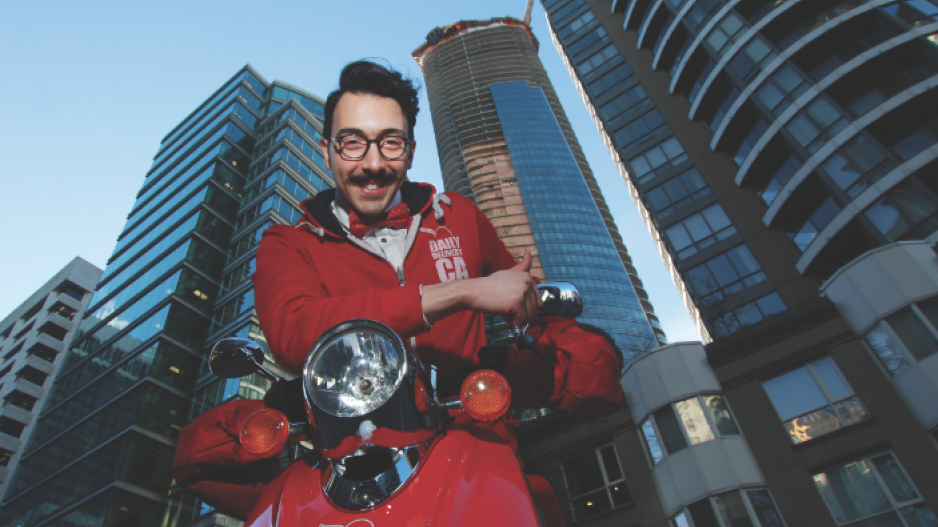Valuations for disruptive-technology startups are soaring, planting big dreams in the heads of Vancouver entrepreneurs who have founded shared-economy ventures.
They’re aiming for their enterprises to one day match the US$41.2 billion valuation that Uber Technologies Inc. achieved in November, when investors paid $1.2 billion for a stake in the car-hailing service. Or even the US$10 billion valuation that accommodation-sharing service Airbnb was tagged with in April.
While many subcontractors of these businesses depend on the income, much like full-time employees, “shared economy” ventures allow people to make money from something they primarily possess for their own use.
Some of the Vancouver companies operating in this space include the carpooling venture go2gether, the sports equipment sharer Share Shed and myBestHelper, a social network that matches families with caregivers.
Daily Delivery principal Hafez Rismani established a venture similar to Uber, but for package deliveries.
About 70% of the revenue that he and his brother Sal generate is from transporting meals for enterprises such as consumer meal delivery company Just Eat Canada, office meal delivery venture Foodee and fellow shared-economy startup Dinnrtime.
Later this month, Rismani plans to launch Grabbit, an app primarily for consumers who want the company’s drivers to do their errands.
“You can request a delivery on our website and it’s connected with a Google application program interface so you can look up a McDonald’s or a Cactus Club and write what you want to order,” he said.
“Just say you want two Big Mac meals and, on the way, go to Starbucks for a latte. We dispatch that and for every extra stop it’s $5. Then we get 10% of the total bill.”
The company operates in Vancouver’s downtown, Kitsilano and Commercial Drive areas but is not yet citywide or in suburbs.
However, the Rismanis have raised about $130,000 from angel investors in their personal networks. They’re aiming to raise at least $200,000 in a “pre-seed round.”
Todd Lajeunesse is similarly keen to raise money for his meal-sharing venture dubbed Dinnrtime.
“I’m bootstrapping the company while living in my parents’ basement,” Lajeunesse told Business in Vancouver.
Dinnrtime links home chefs, who make excess portions of meals, and hungry customers keen to try a home-cooked meal.
One obstacle to expansion, however, is that health authorities take a dim view of meals being prepared in uninspected kitchens. Lajeunesse has been operating based on his argument that his chefs’ meals fall under the health authorities’ “low risk category,” which allows jams, cookies and cereals to be sold at farmers markets.
“Our concern with Dinnrtime and other similar businesses is the fact they’re operating without plan approval from us and the municipality,” Vancouver Coastal Health spokeswoman Viola Kaminski told BIV.
“We don’t have unrestricted access to these kitchens for inspection.”
Lajeunesse’s six-month-old company has attracted several hundred people who have signed up to be eligible to order meals. It also has about 16 chefs who have combined to make about 40 meals so far.
He uses PayPal for transactions and takes a 15% cut of gross sales.




